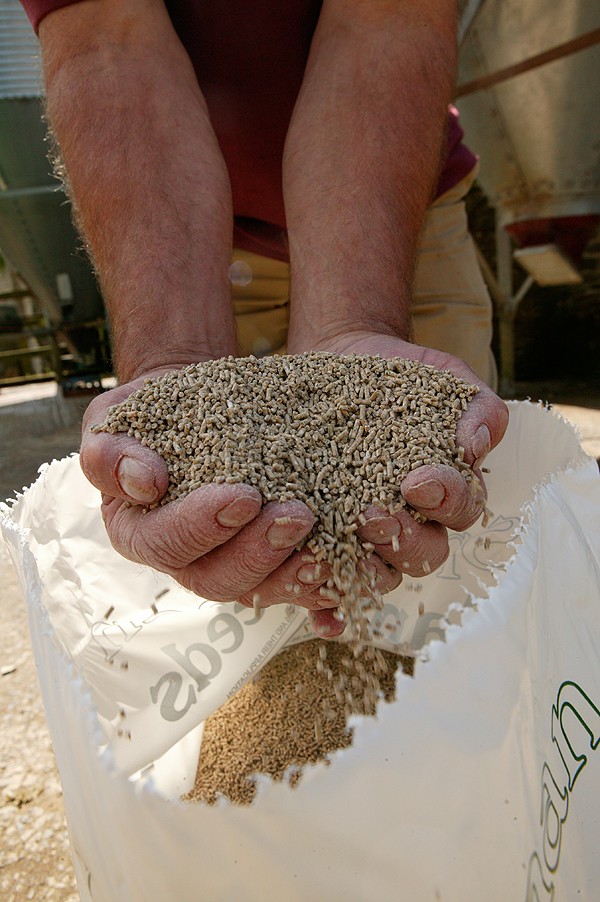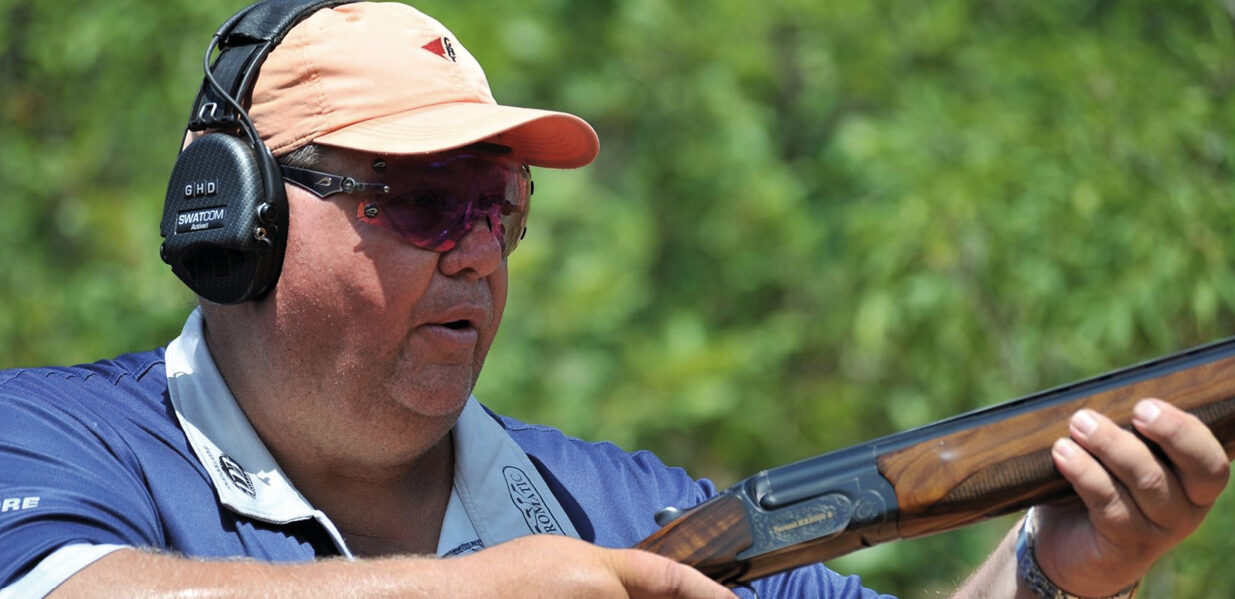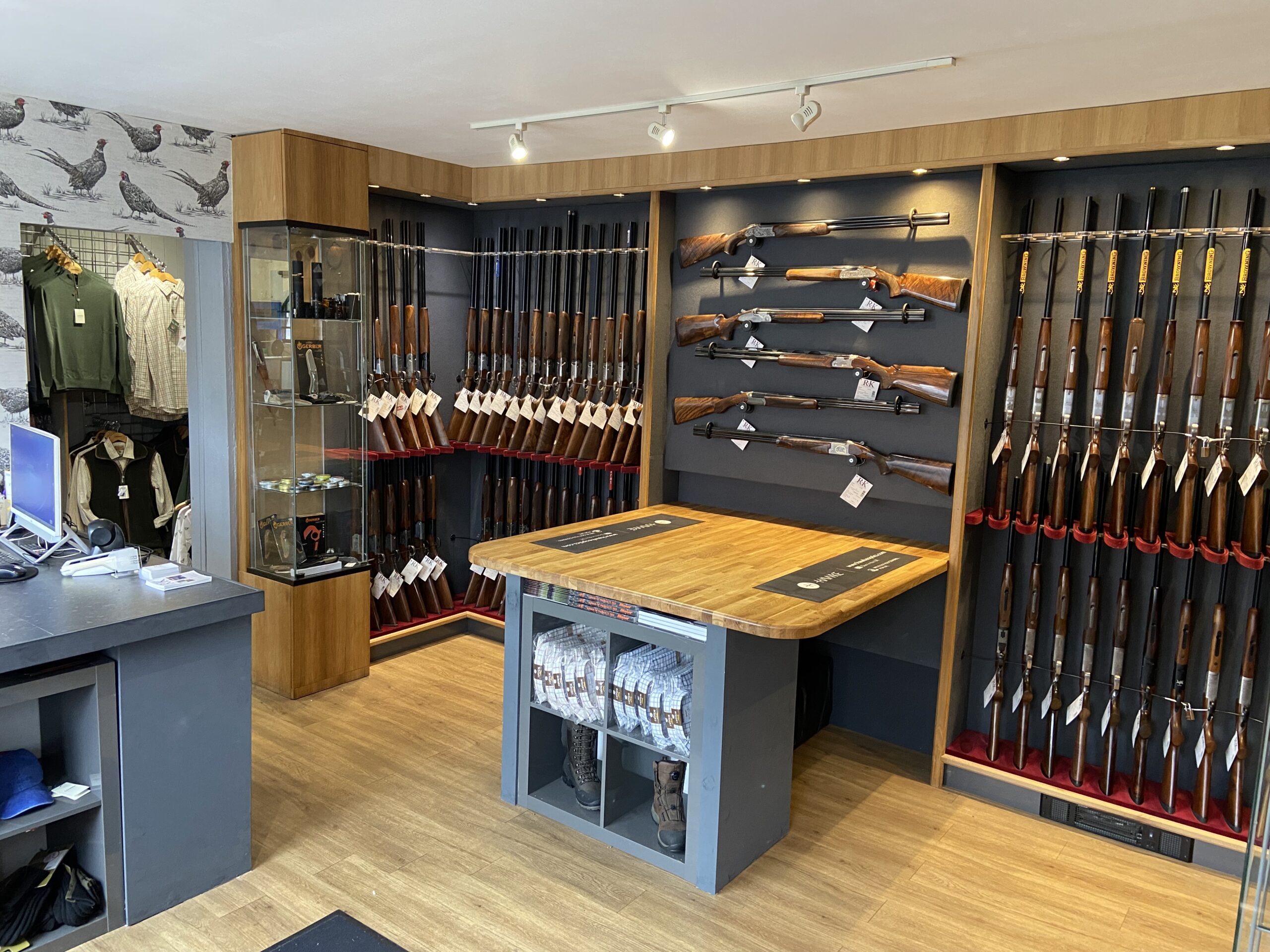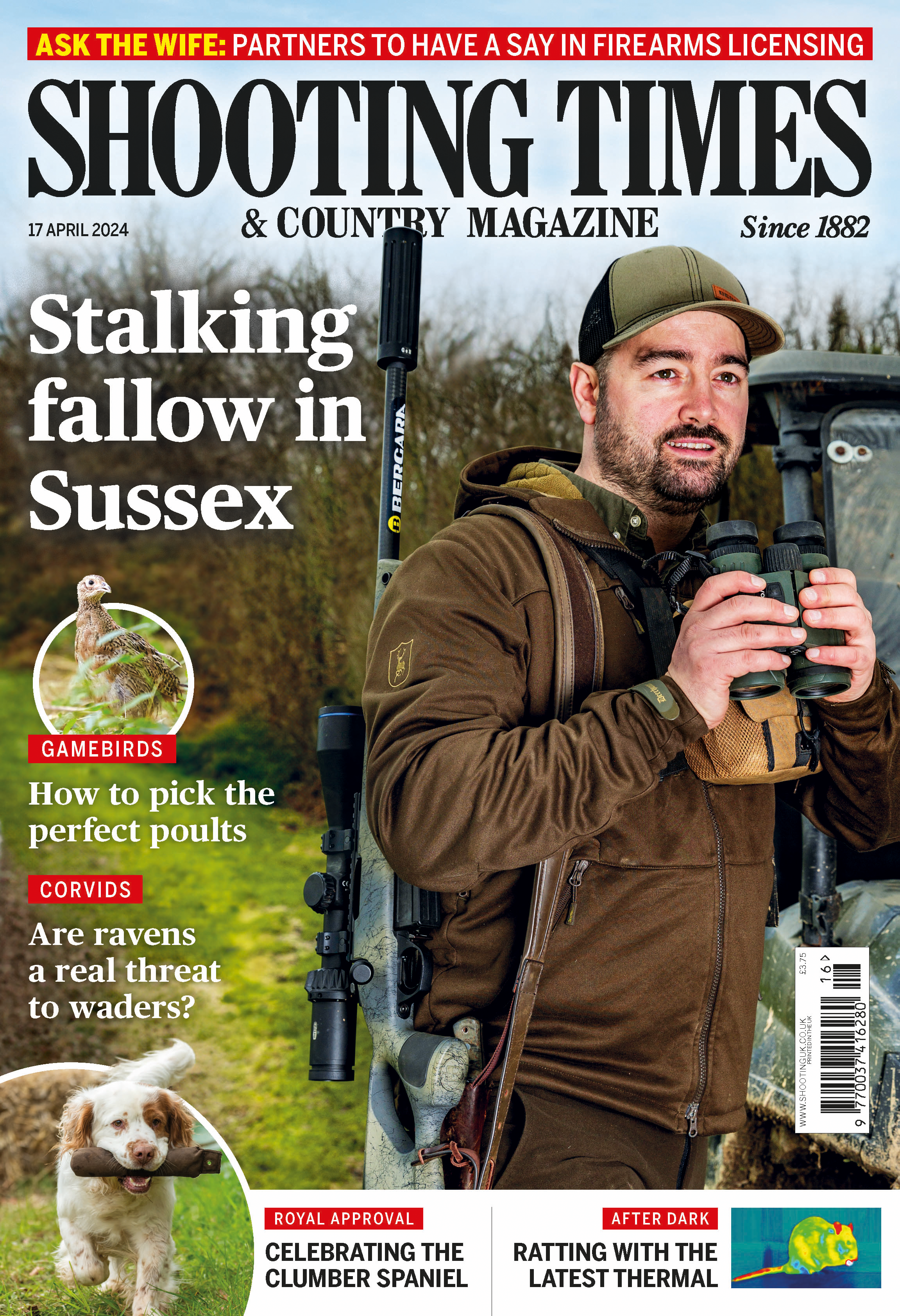Cutting gamefeed prices on Exmoor

One of the major costs borne by driven gameshoots is that of feed required during the two or so months when poults are in the release pens.
Obviously, the amount of feed required is dictated by the number of birds reared and where this runs into thousands the feed bill can be rather more than substantial. In fact, at £300 to £400 a ton, it can be horrifying.
One man prepared to challenge the existing situation is Brian
Mitchell,headkeeper at the renowned Castle Hill shoot, in South Molton, Devon. I recently visited Brian to learn more about his brainchild, the Exmoor Game Feed Buying Group, a form of co-operative that is now in its second year and enjoys a membership of 13 Exmoor shoots. The concept for a joint purchasing consortium was triggered when, on a visit to the Midlands, Brian met Chris Laycock, a representative for Kite Consulting who, for many years, has specialised in advising and managing dairy farmers feed buying groups. This has proved a highly successful operation and one that has brought great benefits to that section of the farming industry.
Driving home that night, Brian pondered on the information he had received and wondered whether there would be any scope for some form of buying group for gamefood within the shooting world. As far as he knew the idea had not been tried before. He also believed that many shoots in his part of the world had been paying over the odds for gamefood and, as individuals, had virtually no bargaining power, so it seemed well worth pursuing the idea.
Brian told me that over the past few years some gamefood suppliers have been bought out and absorbed by ever larger and more influential mills, while at the same time the availability and choice of food has been considerably reduced in his opinion. Each company was claiming that it had the best formula for gamefeed, said Brian, and, bluntly, I felt the system needed to be challenged and placed on a fairer footing.
Brian arranged a meeting with Chris Laycock, who works in South Devon, and asked him if he thought the gameshooting world could emulate the dairy farmers feed buying groups. After some discussion, it was agreed to test the water by holding a meeting to discover whether any local shoots were interested in pursuing the idea. The result was positive. The representatives of eight local shoots, sitting around a table, had between them the buying power of about 1,800 tons of gamefood. Not surprisingly, some of them included major shoots on Exmoor and all were in a position to purchase a significant amount of feed. We had to decide how to go forward, said Brian. One thought was that we could create our own gamefood formula branded with an Exmoor label, but we realised that this approach was far too complicated and, as we were discussing the project in the spring of last year, time was not on our side.
Instead, we asked Chris Laycock to obtain prices from a number of different mills so that we could decide which one we would work with. He also obtained the services of an independent nutritionist to examine the food formulas used at the mills. Eventually, eight mills were chosen and from these the nutritionist selected and recommended four for further consideration. Another meeting of the eight shoots was called for a blind tasting of the chosen mill formulas. Company names were not associated with the formulas as it was felt that this was the fairest way to produce a result acceptable to all the participating shoots.
Fortuitously, the feed formula chosen belonged to a company that
a majority of the shoots were already using. This was ABN Sportsman, a national company with a mill at Cullompton, itself only a short distance from Exmoor. It was decided to go ahead with the venture and the Exmoor Game Feed Buying Group came into existence. The first year proved a success with excellent feed quality, while delivery was invariably efficient and hassle-free. To monitor the feed, an empty bag was twice sent to each shoot in the rearing and releasing season for random sampling of gamefeed to make sure that it remained consistent to the formula originally agreed.
Were now one year down the line, Brian remarked, and the eight shoots that originally joined the scheme have been joined by a further five shoots. The feed order has risen to 2,400 tons. We feel that this figure is our limit, though several other shoots have applied to join. A higher tonnage might force smaller mills, unable to cope with the demand, to withdraw tenders. The group needs to maintain the interest of other mills, too, in case we decide, for whatever reason, to change supplier. There have inevitably been some problems with mills and two refused even to tender. This is our second year with ABN Sportsman, but we will have to re-examine prices and formulas in a year or so. Nothing is set in stone. I can, of course, see a potential problem on the horizon should some shoots wish to stay with the current supplier when others require a change.
What are the savings? Currently members pay by direct debit, and though this does not suit everyone, it means that there is a gain of around £8 a ton, so it is essential to use this form of payment. With feed pellets now so costly, this year the 13 members of the group will save between £60,000 and £70,000 a saving of £4,600 to £5,300 for each shoot.
There are stipulations imposed on group members. Information on gamefeed prices and specifications remains strictly confidential and must not be divulged to anyone outside the group, including keepers and feed representatives. Members are responsible for ordering their own feed and for paying their bills promptly. In addition, they must commit to buying a tonnage of gamebird feed through the group before the start of each rearing season. However, once the feed price is agreed between the group and the selected mill, it cannot be raised during the season by the mill.
If a number of shoots get together to consider the idea of group
feed buying, the basic principle to place them in a bargaining situation is that they must put together a combined order of at least 1,000 tons of feed for a season in order to make the proposal viable. Chris Laycock has proved invaluable to the group and, as Brian Mitchell said, without his input the concept would have been a non-starter. Kite Consultancy does not charge the group for its services, but takes a small commission from the mill per ton of feed ordered.
The success of the Exmoor Game Feed Buying Group has not gone unnoticed and I understand that another group comprising eight shoots has been created in Wiltshire. I suspect that they will not be the last and that the idea will snowball countrywide. As feed buying groups have proved so successful in the dairy industry, there is no reason why they should not be applied to shooting with a similar outcome.
To contact Chris Laycock at Kite Consultancy, tel 07971 452282
What is YOUR opinion?
Join other ST readers in our forums to discuss your views.
Like this article? Mark this page on a social bookmarking website…








